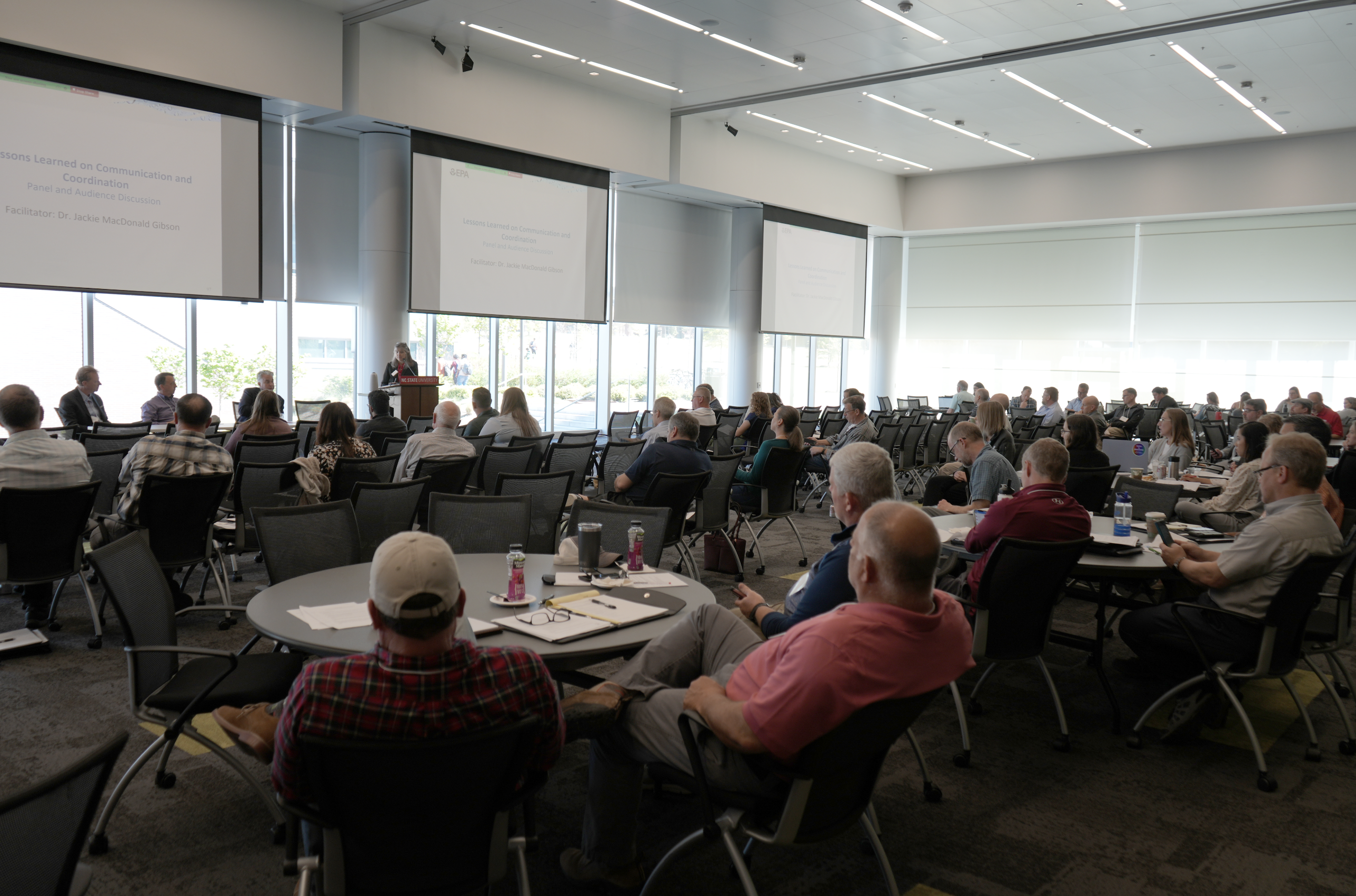 CCEE hosted a workshop alongside the U.S. Environmental Protection Agency on April 4 to bring water utility, public health, health care professionals and other community members together to discuss how the detection of per- and polyfluoroalkyl substances (PFAS) could impact public health and public confidence in the water supply.
CCEE hosted a workshop alongside the U.S. Environmental Protection Agency on April 4 to bring water utility, public health, health care professionals and other community members together to discuss how the detection of per- and polyfluoroalkyl substances (PFAS) could impact public health and public confidence in the water supply.
The workshop included presentations by the NC Department of Health and Human Services, Department of Environmental Quality (DEQ), public health officials, and other PFAS subject matter experts. Water utilities also shared their experience responding to the detection of PFAS in their water systems.
Speakers included CCEE S. James Ellen Distinguished Professor Detlef Knappe and Elizabeth Biser, secretary of the N.C. DEQ, who discussed PFAS emergencies in North Carolina water systems and the state’s response.
There was also a panel and audience discussion about lessons learned on communication and coordination related to drinking water contamination emergencies. The panel, facilitated by CCEE Head Jackie MacDonald Gibson, featured Tom Augspurger from the N.C. Secretaries’ Science Advisory Board; Jeff Warren, executive director of N.C. Policy Collaboratory; and Vaughn Hagerty public information officer of the Cape Fear Public Utility Authority.
After the panel, attendees participated in a hypothetical, scenario based discussion regarding a response to PFAS detection in a water system. The discussion began with how the contaminant may be detected and then focused on the coordination between the water utility, public health agencies, and communication with the public. Groups formulated crisis communication and response plans and identified potentially unmet needs for crisis mitigation and response and strategies to meet those needs.
The workshop results will inform national-level strategies of the U.S. Environmental Protection Agency’s Water Security Division, a non-regulatory division that provides support, tools, and resources to assist the water sector with resiliency efforts for all hazards.
“This event was a great way to bring water industry experts from across the state to collaborate on what steps should be taken after PFAS has been detected in the water system,” MacDonald Gibson said.






